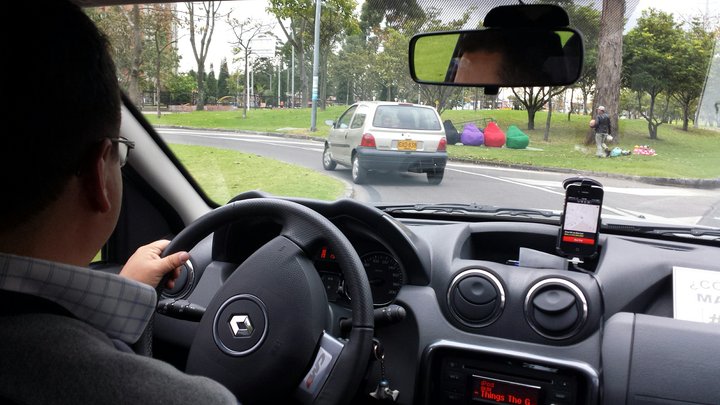It’s a familiar dot-com story: A couple of bright kids see an unfulfilled need and figure out a way to digitally solve the problem. Working late nights in their parents’ garage or college dorm, they monetize their system to and become billionaires before they’re 30. Apple and Microsoft are, of course, ancient history, while eBay (1995), Facebook (2004), Twitter (2006) and Uber (2011) are more recent success stories.
I started thinking about the Uber story, both in light of its recent and well-publicized scandals, and because of our arrival at 1 a.m. a week ago at one of London’s busiest airports. The scandals involving the top executives are pretty gross, although almost routine now — think Fox, Yahoo, Lending Club and United. Something about men getting into positions of power and going the crotch-grab route — what else is new? Politicians, CEOs, gurus, football stars, priests, it’s almost like it’s in the genes. Actually, it probably is, with weak men unable to curb their dog-eat-dog instincts, apparently unmoved by what passes in our culture for decency.
Meanwhile, there’s our experience at Gatwick, shared by tens of thousands of Uber customers every day. Basically: Great! Five stars! Having landed late in the day many times at one of London’s three “fringe” (not Heathrow) airports many times previously, we weren’t looking forward to the option of sleeping on the floor (again) in a corner of Gatwick’s cavernous departure halls. Traveler tip: pack a light sleeping bag, especially if you’re booked on the last SFO-ACV flight of the day. FWIW, I recommend the relatively dark area behind SFO’s Gate 78 counter.
(While writing this column, news came that Uber is to be shut down in London, putting its 40,000 drivers, serving over three million riders, out of business. It may be a false alarm—the court battle could last for years, while the service continues. Other cities have shut down Uber, but in Austin’s case it rose again, and in Vancouver BC’s case it probably will. And if not Uber, other internet-based ride-sharing services usually appear overnight while conventional taxis slowly fade from the scene.)

Uber driver in Bogotá, Colombia with app on his smartphone (Alexander Torrenegra, Creative Commons)
Uber serves Gatwick, so once we’d collected our ungainly folding-bike bags, I clicked on the Uber app on my iPhone. Here’s the genius of the system: not only does it locate the nearest driver and send us a photo of him or her, with the auto make and license number, but it shows us exactly where the car is as it comes for us, updated every couple of seconds. Seven minutes later Fabio arrived in a spiffy black Mercedes (which he rents through the company), took charge of our bags and fatigued selves, and headed off down the motorways (freeways) of southwest London. He was delightful, having come to the UK from Britain a few years ago from Romania with his wife and kid. Setting his own hours, he had nothing but praise for his employer (Uber drivers, according to their website, average $19/hour, compared to $11 for regular taxi drivers), he drove well, and helped us with clunky baggage at our somewhat out-of-the-way destination. Cost: $60 for the 50-mile trip (plus a tip which the app invited us to add after I’d rated him five stars!). No money changed hands — it’s all automatically billed to my Visa.
Easy, effortless, no muss no fuss. Wish it were available locally on more than a hit-and-miss basis. See Ryan Burns’ story here.
As I say, the Uber story is classic. Late one night in 2008, a couple of young Americans couldn’t get a taxi in Paris. What they needed, they realized, was a way of summoning a cab via the internet. Back in San Francisco, they wrote the original app, acquired their “fleet” of three cars and drivers in New York, and watched their baby take off. Today Uber serves 633 cities in 83 countries worldwide — we’ve used the service, happily and effortlessly, in the U.S., U.K. and several Mexican states. Love it.
So then one gets to thinking, what’s right in front of me that I could be developing? At first blush, it seems like it’s all been done. Selfie sticks, drones, roll-up keyboards, pumps in bike saddle posts, stick-on tattoos, auto-cleaning cat toilets, titanium sporks … what hasn’t been thought of? Whatever it is, somewhere, right now, there’s a 17-year-old kid in Kansas City or Singapore or Riga figuring it out, running focus groups, researching crowdsourcing … and dreaming of a mortgage-free life on a beach in the Caribbean.
###
Barry Evans gave the best years of his life to civil engineering, and what thanks did he get? In his dotage, he travels, kayaks, meditates and writes for the Journal and the Humboldt Historian. He sucks at 8 Ball. Buy his Field Notes anthologies at any local bookstore. Please.
CLICK TO MANAGE